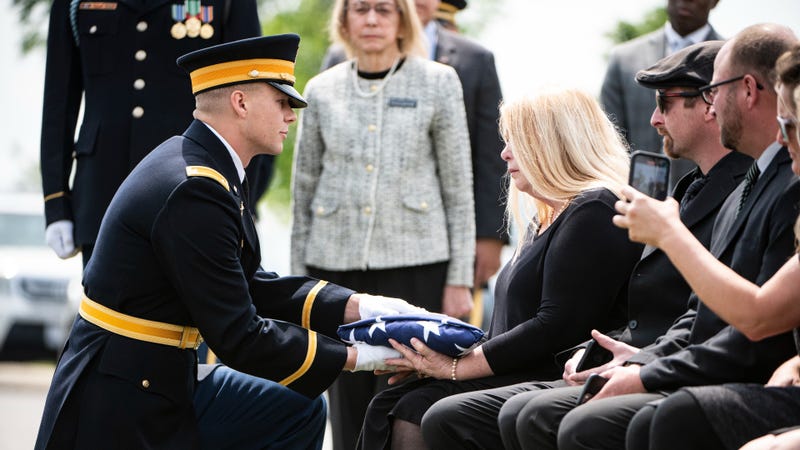
U.S. Army Capt. Isaac Hart led a company of Black cavalrymen during the American Civil War and now his remains have been laid to rest at Arlington National Cemetery on April 27 in Section 76.
According to an ANC release, Hart, a white man from New Bedford, Massachusetts, joined the U.S. Army on April 16, 1861, 11 days after Confederates fired on Fort Sumter, igniting the war. He served in two different regiments before joining the U.S. Colored Troops (U.S.C.T.) 2nd Cavalry Regiment for the war’s last year and a half.
With that regiment, he helped to capture the strategic location of Bermuda Hundred in Virginia and laid siege to Petersburg and Richmond. Leading a Black unit in the war took courage since the Confederate Congress threatened to severely punish officers leading Black troops.
Hart remained in the Army for more than a year following the war and rose to the rank of brevet major. He was also a husband and a father of two. Following the death of his first wife, Clementine, Hart married his second wife, Hanna; their marriage lasted until his own death in July 1913.
Yet Hart was never buried. His remains were placed in an urn on a shelf of unclaimed remains at a Cincinnati, Ohio, cemetery. They were recently discovered there by a man preparing to bury a family member. He researched Hart and found one of his decedents living in Albion, Indiana: Hart’s great-great niece Rachel Bender, who traveled with her husband to the Cincinnati cemetery to claim her ancestor’s remains. She also contacted Arlington National Cemetery to give her ancestor a proper burial.
A small crowd of about 17 people, including four Union Army reenactors and two National Park Service rangers, gathered to pay their final respects as members of the 3d U.S. Infantry Regiment (The Old Guard) escorted Hart to his burial section.
“I know that Isaac was loved and that he will forever be missed,” Army Chaplain Capt. John Ulrick told the gathering. With Hart’s burial at ANC, he added, “I also know that he will never be forgotten.”
Ulrick then related how Hart’s selfless deeds during the Civil War resonate into the present.
“Isaac’s military service has truly changed the course of history for our nation,” he said, “and it has changed me personally as well.”
Ulrick then mentioned his five children, four of whom are Black.
“I love my children with all my heart, and I personally owe a debt of gratitude to Maj. Isaac Hart for fighting for them, for their freedom and for me to be able to be their father.”
When the service ended, a Black park ranger walked up to Mrs. Bender and spoke quietly to her. His words brought tears to her eyes, and he put his arms around her.
Reach Julia LeDoux at Julia@connectingvets.com.


